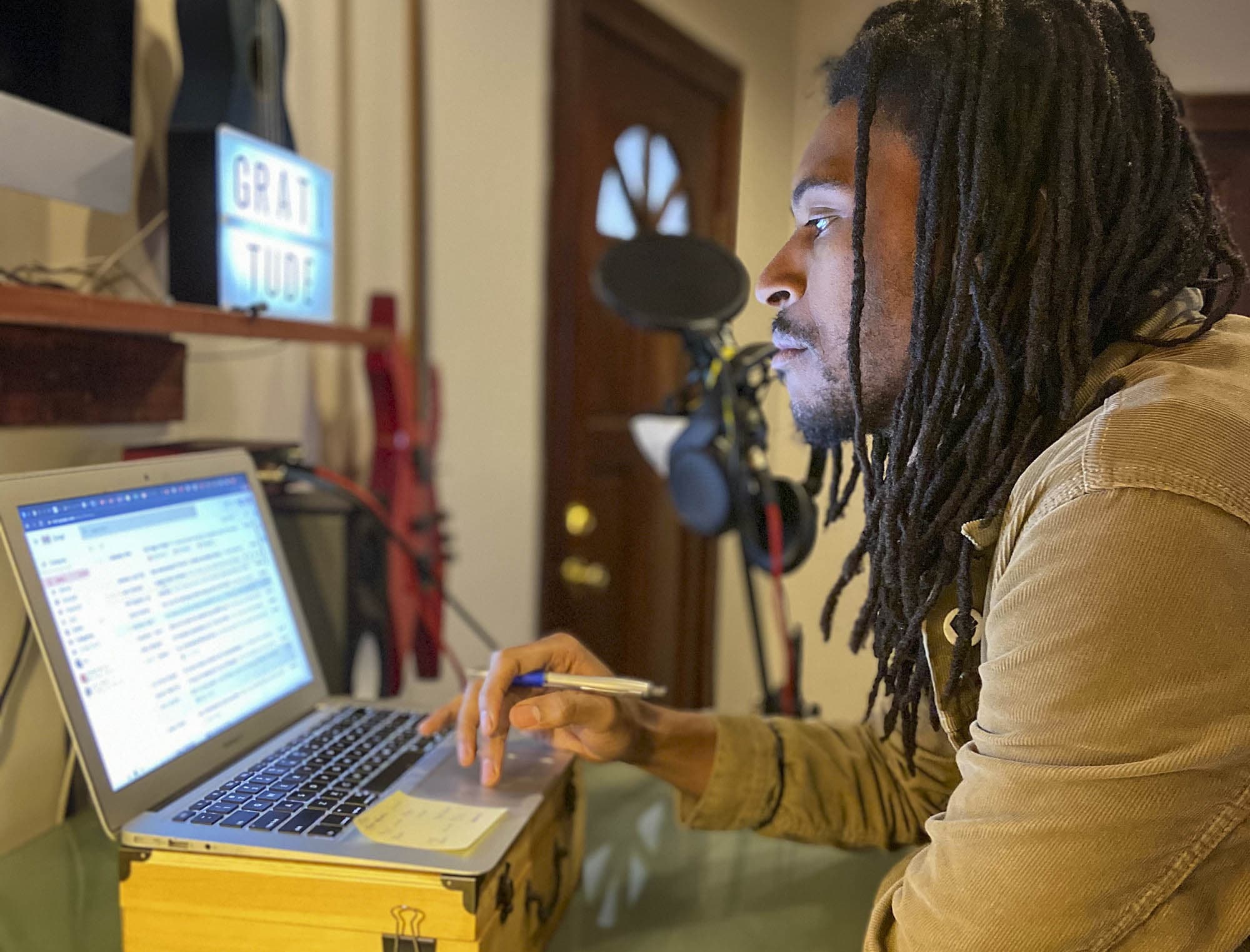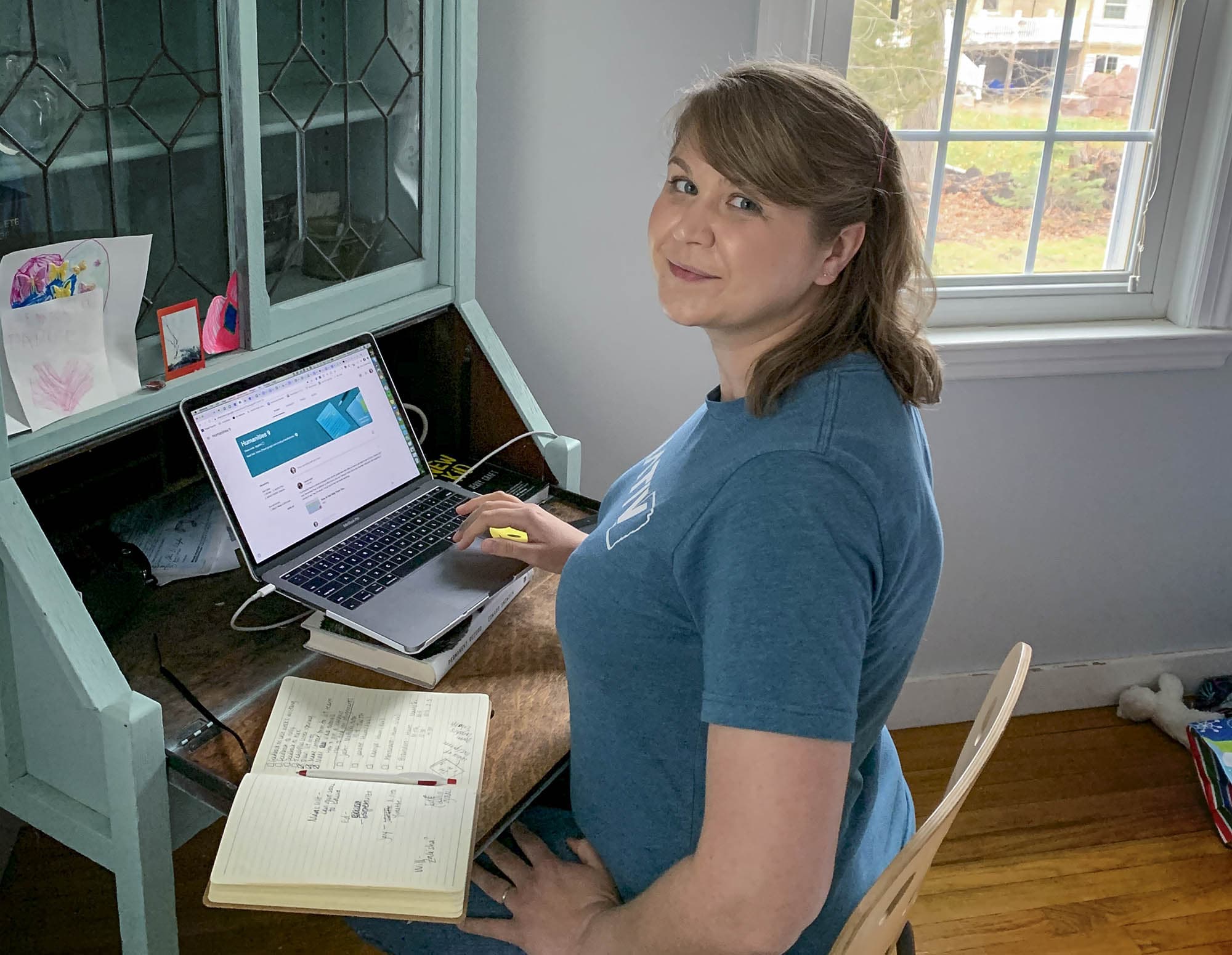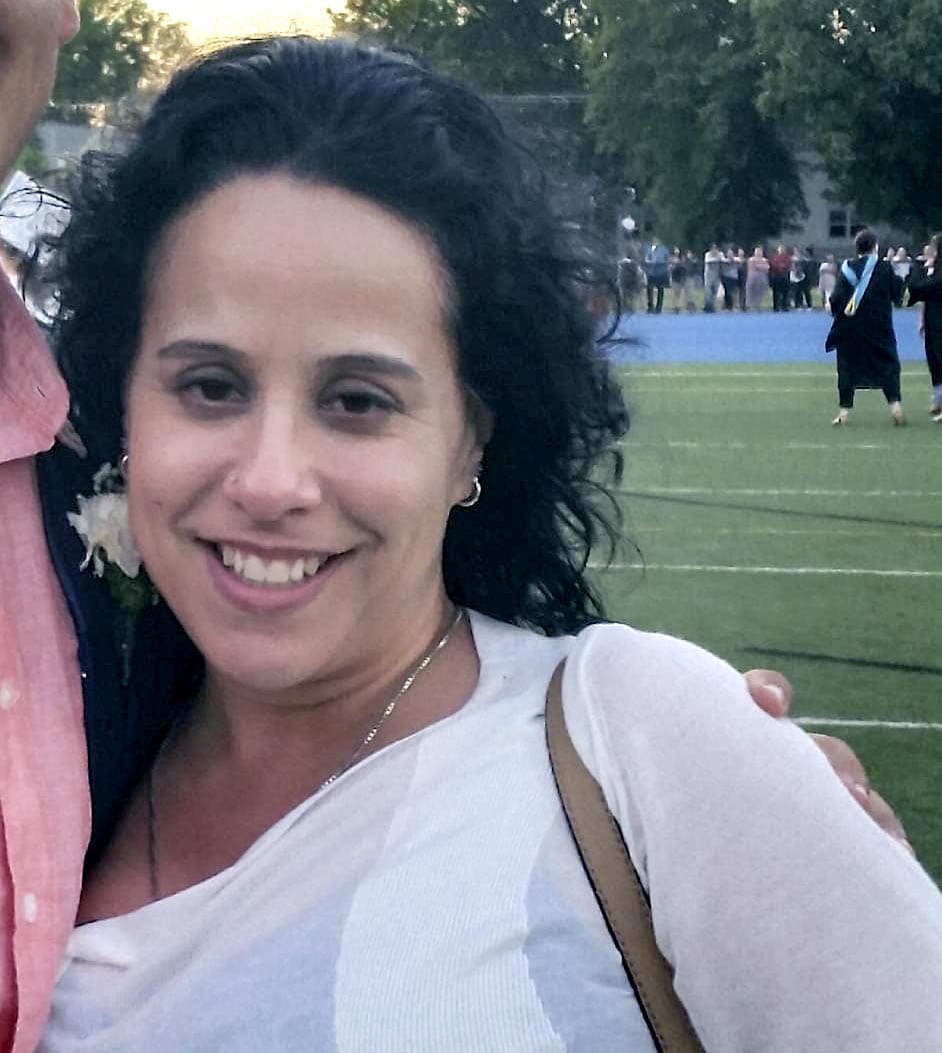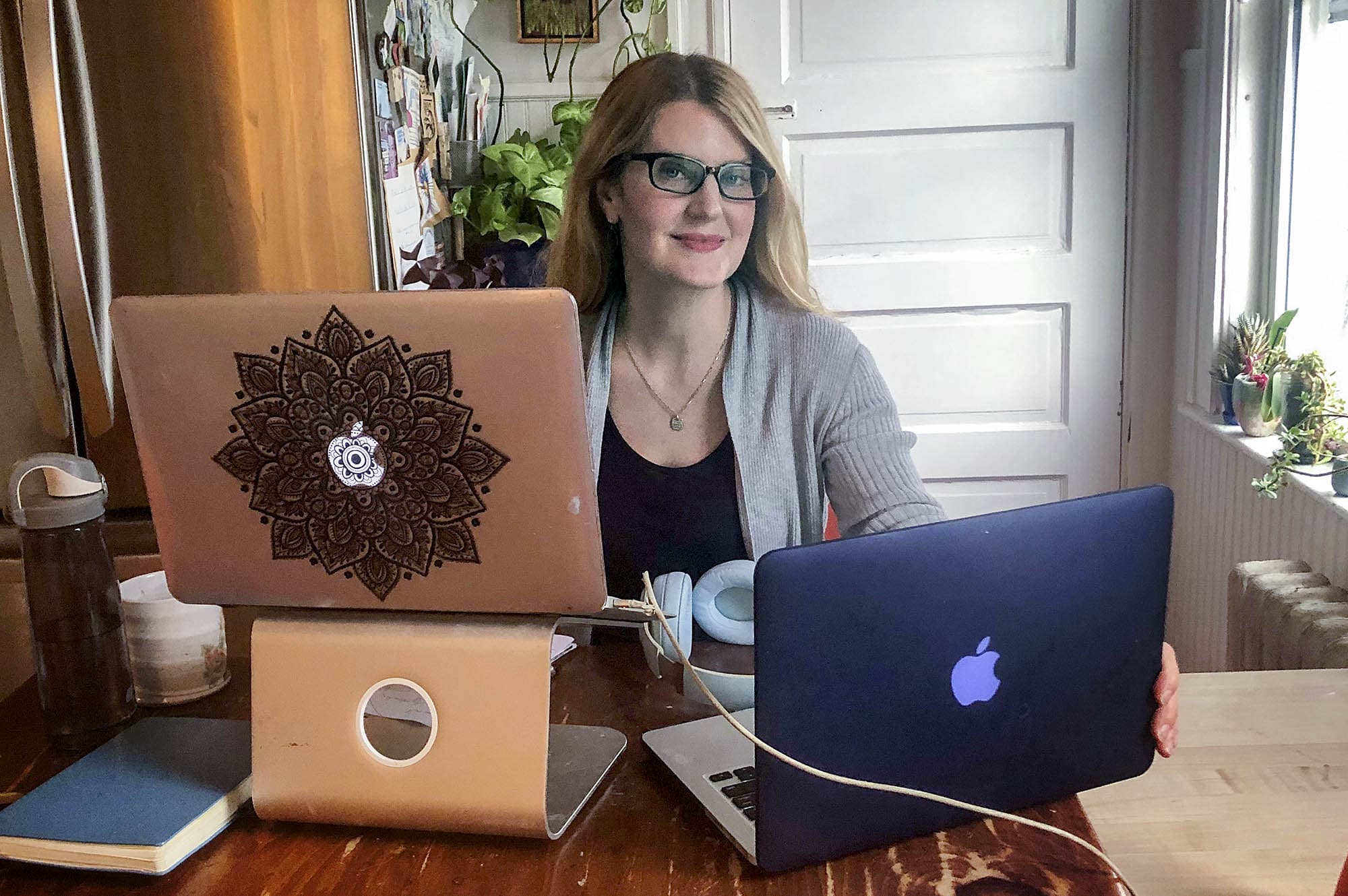Advertisement
Coronavirus Coverage
Teaching Without A Classroom: 4 Educators Reflect On How They're Adapting To The Pandemic
Schools in Massachusetts have been closed for more than three weeks. For teachers, the abrupt changes in daily routines and physical isolation from students has presented new challenges and concerns about how to stay connected and support students' well-being and learning.
WBUR spoke with educators for insight about their new normal. Here are highlights from their reflections, as told to Carrie Jung and edited for clarity.

David Jones - Humanities Teacher, Boston Day and Evening Academy
Jones works at an alternative high school in the Boston Public Schools system that provides competency based curriculum for students who may have dropped out of school or need to catch up.
This closure has felt like you're swimming in uncharted waters. Basically overnight we have traveled from a place where we knew our craft and we knew how to do it, to this brand new place of being asked to teach virtually. What you do in the classroom is really rooted in how well you’ve planned for what’s coming and there was little to no warning that we were going to be thrust into this brand new world.
I sent the initial, ‘Hey, what’s going on?’ text message and most of everyone responded. I followed that text message up noting I hadn’t seen any activity on Google classroom and students stopped responding to me after that.
I’m getting a lot of calls around 6 p.m. You know, I’m settling in. I’ve had a full day, I’ve been up. I’m like, ‘What time did you wake up?’ And it’s like, ‘3 p.m.’
Advertisement
I definitely do feel disconnected from them and it’s hard to feel that way. I just hope that the strength of those relationships can prevail at this time and help both teachers and students stay connected.
I can kind of sense within the first few moments of an interaction whether a student will warm up to the idea of academics or if they just kind of need a human that they've built a trusting relationship with to listen to how they're feeling. Some students may need to just have a cry. And that's part of what I see as my role during this time: is to be a human first and then teacher second.

Sydney Chaffee - Humanities Teacher, Codman Academy Charter Public School
It's really challenging. I'm trying to teach my kids from school from home and also my own kid who’s five from home. How to engage my high schoolers online when we’re not face-to-face? How to engage my five year old when I have no training as an early childhood educator? And just sort of juggle everything. It's really challenging.
We're building this thing as we're flying it. We’re trying to figure it out. And the kids are learning it at the same time we are. The families are learning it.
Yesterday, I felt like I didn’t have enough time to do all of the things that needed doing. And at the same time, paradoxically, I felt like I wasn’t doing anything. Any moment that I was able to sit at the computer and do school work, I was doing school work. I was contacting families, I was putting up materials, and replying to kids and doing a video chat. And then at the same time after each one of those moments, I felt like: what did I just do? I did nothing. That’s just so mentally draining.
And it can feel like I’m not getting the feedback. I don’t actually know if this thing is landing with kids. I don’t know if all of the effort that I just put into making this material will actually matter. So I guess there’s a futility sometimes and the lack of human connection, because we’re all just on screens and phones, really adds to that.
One thing that’s happening: it's really forcing me to question how I teach. Depending on the day, that's either incredibly painful or it leads me down some creative paths to think about: have I been relying too much on compliance rather than true engagement? So this situation is forcing me to really try to engage kids, to try and put something up online that will actually make them want to do it.

Laura Embriano - Special Education Teacher, Cambridge Rindge and Latin
At work is where I get my energy, because I’m all over the place. Kids are with me all day long. They make me laugh. I act crazy. But in the house, it’s kind of, ‘OK, um, now what?’ Students have all these questions and as a teacher, we’re going, ‘I don’t know.’ We don’t have the answers for them. So that’s a little stressful when they’re looking to us for answers and we don’t have them.
Not seeing them and wondering: are you going to log in? And if you don't, I can't go looking for you. I can call you, but you might not answer the phone. So if you're not answering, you're not turning anything in, you’re not emailing, then it’s kind of a ‘now what?’ We’re not sure. Are you sick? Did you go somewhere else? Are you in a severe depression?
Trying to rope them in and really engage them and get them committed to getting things done especially when there are so many other things going on in their house. They're worried about other things.
(Her phone buzzes) Oh wait, I just got a ‘Guess what’ from a student. I’m willing to bet this is a college thing. She said, ‘Thank you so much, I’m so happy.’ Normally, that would be a student coming down to my room, opening my door like a beast [screaming], ‘Guess what!?’ That’s the stuff. You can congratulate with exclamation points over a phone, but it's not the same as a giant hug and, ‘I’m proud of you.’

Karen McCarthy - Principal, Curtis Guild Elementary School
The word overwhelming is the new normal. I think we are all learning by doing here. It's hard. It's emotionally difficult.
The first week, our priority was — I'm going to sound corny, but — connection, love, do you have what you need.
I sent an email to a teacher weeks ago and I said to her: Listen, what you are doing right now is how so many of these kids are going to remember this time. The way you are connecting, the way you are engaging with them, the way you are building community with them is going to be something that they think back on. That is a huge responsibility and it's something we take seriously.
I have to try to think about what we can take out of this for good, because if not, the energy won't be there to try to keep doing it.
One of my worries is about the fall. What is the fall going to look like? What are the gaps going to be? Are any kids going to have fallen off the radar? Is everyone safe? Is everyone going to stay healthy? Is everyone going to stay warm and fed? Those are always in the background. And what is our role to do everything? Because this is also showing in the country that schools do a lot and we need everyone to help us do it.
This segment aired on April 10, 2020.
